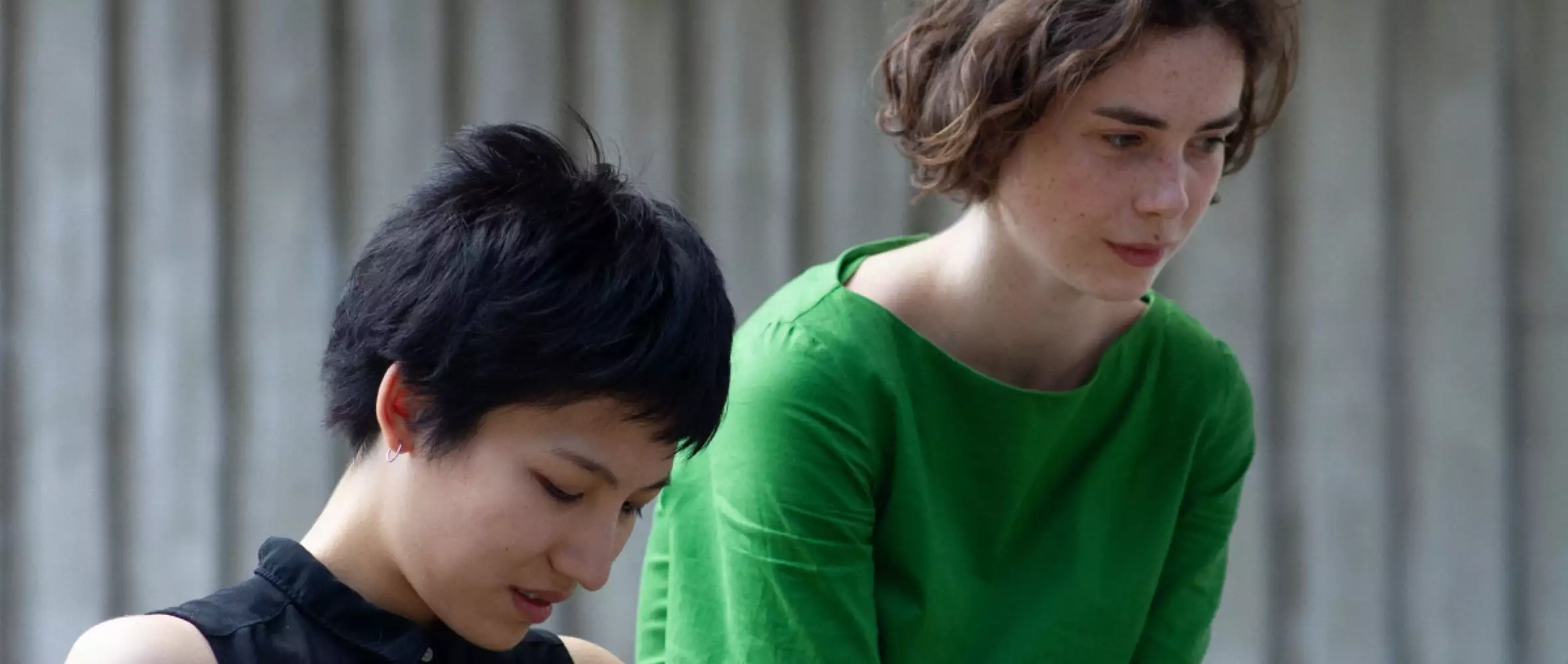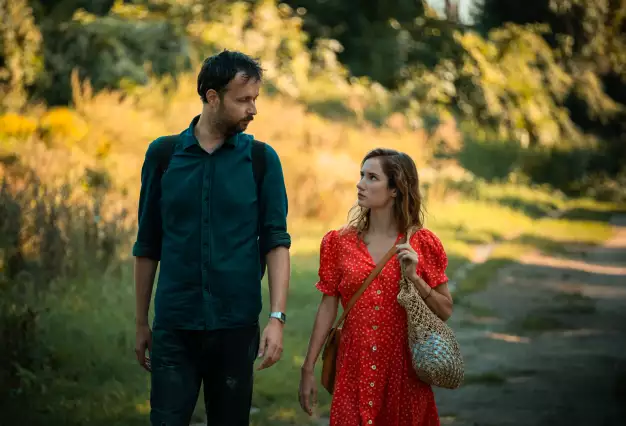
14 September 2020
Czech Film Springboard 2020
Spotlight on Budding Domestic Talent
Czech Film Springboard 2020
Spotlight on Budding Domestic Talent

Czech Film Springboard—organized by the Czech Film Fund and the Czech Film Center, a division of the fund—has grown since its founding in 2016 to become a solid platform for introducing notable projects in the early stages of development. Producers have the chance to showcase their projects to international film professionals and industry experts, including sales agents, distributors, funders, co-production market representatives, and festival programmers. As a networking opportunity, this gives Czech producers access to partners or seasoned professionals who can consult on various aspects of their projects, as well as generating awareness and buzz for their works on a platform connected to the international film industry.
The one exception to the profile of Czech Film Springboard as a launching pad for young and emerging directors is middle-generation filmmaker Ivo Trajkov. In addition to directing, the Macedonian-born Trajkov teaches at Prague’s FAMU and works as a script consultant. Currently he is putting the finishing touches on his Slovak-Czech-Macedonian period feature Piargy, which should be ready for a 2021 release. The €1.6 million drama—adapted from a 1942 short story by the Slovak František Švantner, a leading writer of the naturalist school—is a mystical tale about the rebirth of the Antichrist, and doubles as a metaphorical allusion to the biblical story of Sodom and Gomorrah (the title refers to the village where it all takes place).
Trajkov’s upcoming project, Situation of the Priest, is another period drama, this time set in 1969 Czechoslovakia. The story weaves together historic events and personal dilemmas following the burial of Jan Zajíc — the second person after Jan Palach to martyr himself by self-immolation in protest against the August 1968 Warsaw Pact invasion of Czechoslovakia. The film’s title refers to the story’s protagonist and the “three days in which the priest will have to deal with the dilemma of faith and the meaning of service to God; the dilemma of love, divine and earthly; the dilemma of whether or not to help one’s neighbor, of how to deal with betrayal and devotion,” explains Trajkov, now at work on the first draft of the screenplay. He notes that “God is silent” in response to the priest’s questions. His co-author on the script is Slovak screenwriter Marek Grajciar, who previously penned the domestic crime film Miss Hanoi. In Trajkov’s words, God’s silence is the film’s central theme, and Situation of the Priest is intended as a silent film. The story features motifs seen in other recent Czech films: self-immolation in protest against the 1968 invasion (Burning Bush, Jan Palach); collaboration of clergy with the secret police (Ivan Ostrochovský’s Servants); a period film with a closeted protagonist (Agnieszka Holland’s Charlatan). Principal photography and post-production works are scheduled for 2022.
Producer Zdeněk Viktora of SCREENPLAY.BY calls Situation of the Priest “a significant arthouse project.” He describes Trajkov as “a renowned filmmaker who knows how to work with big-budget historic films, like his drama, Great Water, but can also achieve maximum artistic results with minimal resources, as he did in the crime drama The Past.” Viktora notes that Trajkov is no stranger to the story of Jan Zajíc, as this was the subject of the director’s first project, his 1991 biopic Jan, which inspired Situation of the Priest. “After 30 years, Trajkov is returning to the story that began his career,” says Viktora.
The Czech Film Fund supported development of the film, which is being produced by Viktora and SCREENPLAY.BY in co-production with Slovakia and Macedonia. He is also seeking another co-producer from Poland.
Marek Čermák is an emerging director of the Czech Republic’s youngest generation. In addition to directing commercials, he has also worked as a personal assistant to the veteran filmmaker Agnieszka Holland and was a post-production coordinator on her latest project, Charlatan. Hana Blaha Šilarová and Karolína Fránková of Frame Films are the producers behind Čermák’s first feature-length outing, Homeland, which doubles as his FAMU graduation project.
In 2018, the Czech Film Springboard selection saw a strong contingent of projects with plots centered on the historic relationship between the Czech Republic and Germany. The most recent of these is Bohdan Sláma’s Shadow Country, based on Czechoslovakia’s expulsion of Germans from its border regions during and after World War II. Čermák’s Homeland, inspired by his own childhood experience, unfolds in the present but touches on a similar topic. We see a group of German tourists on their way to visit their former homes, since settled in by a second and third generation of Czechs. On arriving, their bus breaks down in a small Czech village, home to the film’s protagonist, Matěj, a middle-aged architect. With a celebration of the mayor’s birthday about to happen, the locals invite the elderly German tourists to take part, and the two worlds, Czech and German, collide. This setup opens up an opportunity for Čermák to address the injustices of years past, and wrongdoings on both sides.
The board of Czech Film Fund, who supported the project’s development, note that the well-written story broaches a “socially beneficial topic that could even have a therapeutic effect.” Producers Šilarová and Fránková say that Homeland, conceived as a drama with elements of comedy, “uses humor to depict the misunderstandings that can arise between people due to language barriers or cultural differences. Petty conflicts ultimately evolve into situations similar to an act of history repeating itself.” The project, co-produced with Studio FAMU, is expected to go into production in 2021 or 2022, with an eye to a world premiere sometime in 2023. The producers are currently seeking German, Polish, and Slovak co-producers.
Foreign filmmakers working on projects in the Czech Republic are no rarity. Besides Ivo Trajkov and Olmo Omerzu, both of whom have become an integral part of the domestic industry fabric, the wealth of international talent includes Hungarian-Romanian writer-director Cristina Grosan and Norwegian director Erlend Hella Matre, who introduced projects at the Czech Film Springboard’s previous edition. Iranian filmmakers are also active on Czech turf, and more recently, emerging talent based in Prague comes from as far away as China.
Piaoyu Xie, who finished her MFA in directing at FAMU International in 2018, has a series of short films that have traveled the international festival circuit. These include the coming-of-age queer drama The Nettle, which premiered at the London LGBTIQ+ Film Festival, BFI Flare. She is currently finishing the short film Cicada, while also preparing her feature-length debut, The Ugly Mandarine, a multicultural same-sex romance inspired by the director’s personal experiences. The project, which addresses the subject of immigration from an LGBT perspective, won the Coco Award at the Karlovy Vary International Film Festival in 2018, and took part in MIDPOINT Feature Launch 2018. Veronika Kührová, producing the film for the Czech outfit Analog Vision, says production is planned for spring 2022, with post-production expected to wrap in fall 2022 for an early 2023 world premiere on the festival circuit. Script development for The Ugly Mandarine was supported by Czech Film Fund, and the project received MEDIA Development support from Creative Europe. Kührová notes that they are looking for co-producing partners from France and Slovakia to board the project, and adds that The Ugly Mandarine is not just a female-centered story, but a female-driven project, as women will fill roles in the film crew as well.
Besides Czech-German relations and the aftermath of the 1968 Warsaw Pact invasion, Prague Spring is another crucial historical milestone that is pervasive in Czech cinema. Jiří Mádl, a writer-director of the younger generation, will tackle the theme in his third feature project, Waves. Though he started off as an actor, Mádl has recently been spending a fair share of time behind the camera as well as preparing scripts for future projects. His latest acting role was the lead in The Play, an international film by Chilean director Alejandro Fernández Almendras, introduced as a work in progress at the 2018 edition of Czech Film Springboard. Mádl’s directing debut was the found-footage-style coming-of-age family film To See the Sea (2014), which he followed with an intergenerational, intercultural dramedy called On the Roof (2019).
Apparently fond of varying genres and styles, in Waves the emerging writer-director has decided to tackle a period film. Though the script is based on true events, Mádl decided to fashion the protagonist as a Czechoslovak everyman, an ordinary citizen in a tale of heroism, “the kind we all can identify with,” he says. The movie will be produced by the Czech company Dawson Films (also behind Mádl’s previous project, On the Roof).
Štěpán Altrichter is of the same generation as Mádl and the other rapidly rising Czech talents, but thanks to his background in Germany, Altrichter has enjoyed greater international exposure. He broke onto the filmmaking scene with the German-language mystery dramedy Schmitke, which was also his graduation film. Recently he followed this up with his sophomore feature, National Street, an adaption of Jaromír Rudiš’s novel of the same name, a Czech-German co-production. And even before National Street, Altrichter had already launched into his most ambitious project yet, the dark psychedelic drama Runner, which he likens in style to the work of Argentinian enfant terrible Gaspar Noé.
Now, as he moves forward with Runner, Altrichter has been asked to direct yet another new film, A Furious Beauty. Switching genre once again, this will mark the director’s first foray into magical realism, veiled in the local folklore of a small-town Catholic festival. The screenplay, which won an award from the Czech Republic’s Film Foundation, was penned by budding talent Eliška Kováříková, a two-time FAMUfest winner in the category of Best Unrealized Script, including for A Furious Beauty. The story follows seven days in the life of 15-year-old Eliška, who is convinced she hears “the voice of God.” The teenage Eliška shares her name with her 6-year-old sister, her mother, her grandmother, and her great-grandmother, the latter celebrating a century of life, and all five women are dealing with the different issues that come with their different ages.
“These short but extremely important fragments add up to create the picture of a life journey,” says producer Miloš Lochman of moloko film, suggesting that the five characters actually represent a single woman at various stages of life. “All the women in the family are seeking their place in a world created by men — a world where men have lost all power to move the plot forward” adds the scriptwriter. The second draft of the script is currently being revised with the support of ScripTeast, and the film’s casting is already in progress. Location scouting and pre-shooting took place in July 2020. The main production phase could unfold in summer of 2021 or 2022. The producer plans to bring the project to the Italian market MIA and the East-West co-production market Connecting Cottbus. He envisions the preliminary production model as a three-way venture between the Czech Republic, Germany, and France.




